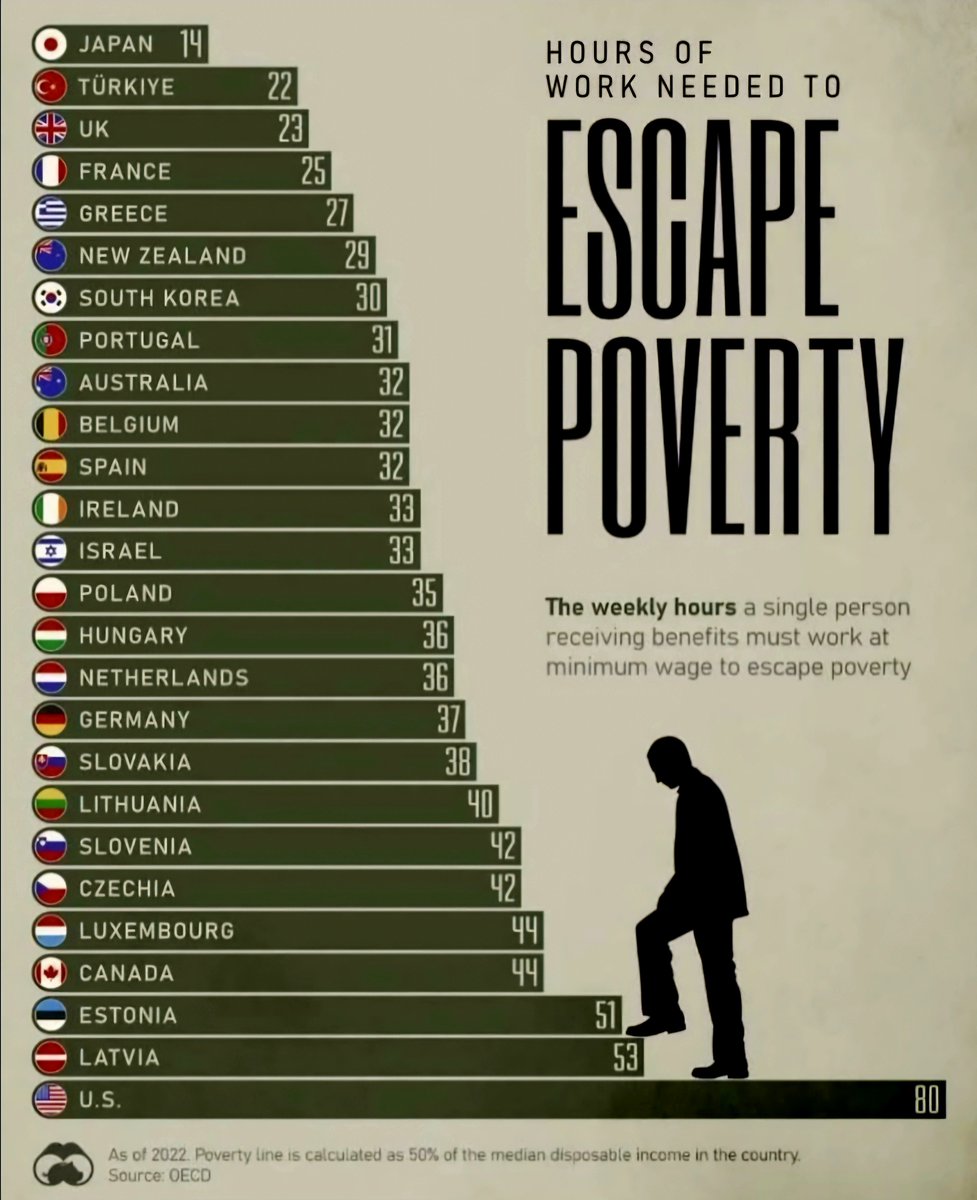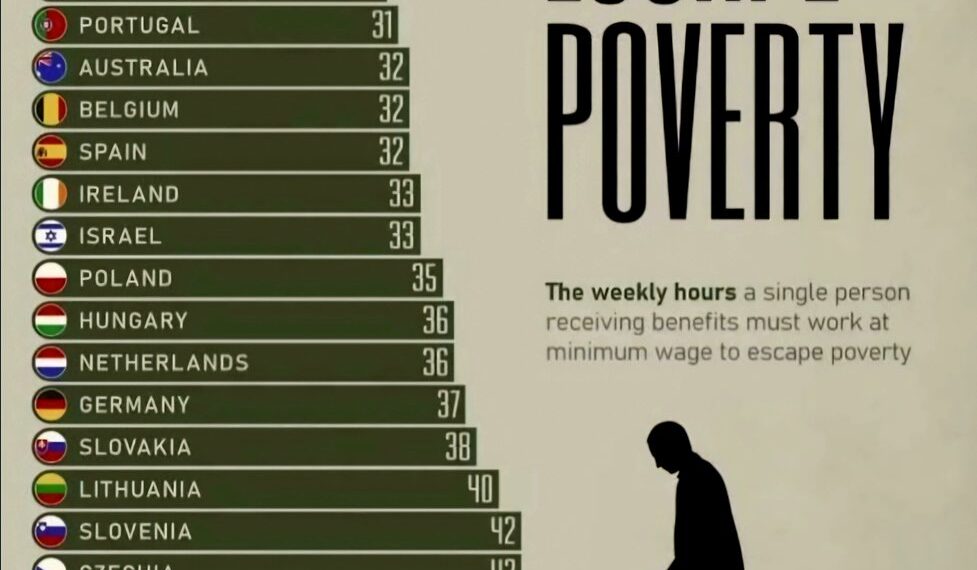Select Language:
Weekly Work Hours Needed to Escape Poverty in 2025: Key Insights from OECD Data

1. The Link Between Work Hours and Poverty Reduction
According to recent OECD data, the number of weekly work hours needed to lift individuals out of poverty varies significantly across countries. In 2025, most nations recognize that increasing work hours alone isn’t a one-size-fits-all solution. The underlying structure of social safety nets, wage levels, and cost of living plays a pivotal role in determining how many hours a person must work to attain financial stability.
2. Countries Where Less Than 30 Hours Can Make a Difference
In nations such as Denmark and the Netherlands, individuals can often escape poverty by working around 25-30 hours a week, thanks to robust social support systems and higher minimum wages. These countries benefit from strong labor protections and comprehensive welfare programs, which supplement income and reduce the number of hours needed to reach a livable standard.
3. Nations Requiring Over 40 Hours Per Week to Break the Cycle
Conversely, the United States and Turkey report that individuals must work approximately 42 to 45 hours weekly to avoid falling into poverty. This is primarily due to wider income disparities and more limited social assistance, which places a heavier burden on workers to meet basic needs through employment alone. The data highlights how economic policies significantly influence the hours necessary to maintain a minimal standard of living.
4. The Impact of Cost of Living and Housing Expenses
A critical factor influencing these numbers is the cost of housing, healthcare, and education. In cities with soaring living costs, the required work hours to escape poverty increase substantially. For example, in urban centers like New York City and Los Angeles, residents often need to work upwards of 50 hours a week to cover essentials, emphasizing the importance of affordable housing and accessible healthcare policies.
5. The Role of Wage Levels and Job Quality
Higher wages and better job quality reduce the number of hours workers need to work to escape poverty. Scandinavian countries, with their focus on fair wages and employee well-being, demonstrate that investing in job quality can significantly lower work time requirements while improving living standards. Conversely, low-wage sectors across many nations force workers into longer hours, often unsustainable, to meet basic needs.
6. Effect of Social Safety Nets and Policy Measures
The presence of effective social security programs can dramatically shift the hours necessary to avoid financial hardship. Countries with generous unemployment benefits, child allowances, and healthcare provisions tend to have lower thresholds for escaping poverty through work. Policymakers are encouraged to reassess existing safety nets, as these can work synergistically with employment to reduce work hours without sacrificing well-being.
7. The Future Outlook: Strategies to Reduce Work Hours While Improving Living Standards
With technological advances and changing labor markets, some countries are exploring more flexible work arrangements to reduce weekly hours needed for financial security. Universal basic income (UBI) proposals and policies promoting work-life balance aim to decouple income from sheer hours worked. In 2025, innovative policy measures are increasingly seen as vital in creating equitable economic systems that allow workers to escape poverty with fewer hours on the clock.
8. Variations Based on Education and Skill Levels
Not all work hours are created equal. Skilled workers generally require fewer hours to escape poverty thanks to higher wages and better job security. Investment in education and vocational training remains crucial in reducing the burden of long work weeks for low-income populations.
9. The Broader Socioeconomic Implications
Understanding the number of hours needed to lift people out of poverty reflects broader issues of income inequality, social mobility, and economic justice. Countries aiming for inclusive growth are considering policies that balance work hours with quality of life, diminishing the necessity for excessive work hours to maintain financial stability.
10. Summary: Moving Toward a Fairer, More Equitable Future
As of 2025, data from the OECD shows a clear pattern: nations with comprehensive social programs, fair wages, and affordable living costs require fewer work hours for individuals to escape poverty. Moving forward, policymakers across the globe are emphasizing not just employment rates, but the quality and sufficiency of work, ensuring that work becomes a genuine pathway out of poverty rather than an additional burden.
[End of Article]






